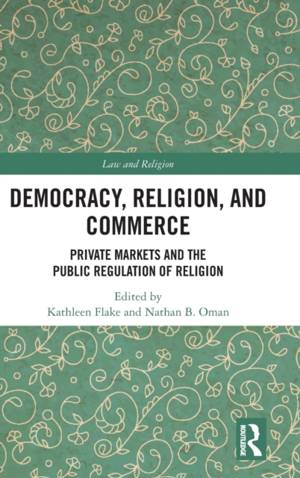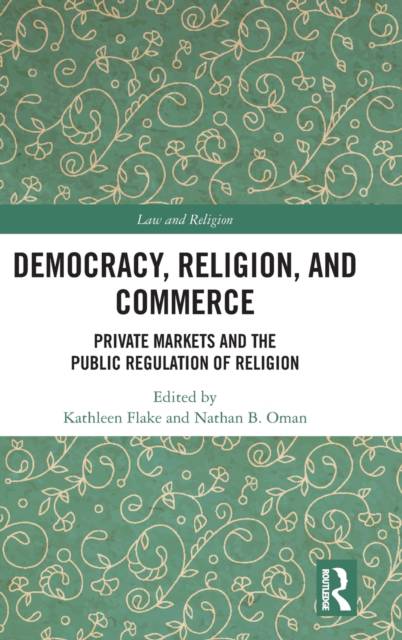
- Retrait gratuit dans votre magasin Club
- 7.000.000 titres dans notre catalogue
- Payer en toute sécurité
- Toujours un magasin près de chez vous
- Retrait gratuit dans votre magasin Club
- 7.000.0000 titres dans notre catalogue
- Payer en toute sécurité
- Toujours un magasin près de chez vous
Democracy, Religion, and Commerce
Private Markets and the Public Regulation of Religion
Description
This collection considers the relationship between religion, state, and market. In so doing, it also illustrates that the market is a powerful site for the cultural work of secularizing religious conflict. Though expressed as a simile, with religious freedom functioning like market freedom, "free market religion" has achieved the status of general knowledge about the nature of religion as either good or bad. It legislates good religion as that which operates according to free market principles: it is private, with no formal relationship to government; and personal: a matter of belief and conscience. As naturalized elements of historically contingent and discursively maintained beliefs about religion, these criteria have ethical and regulatory force. Thus, in culture and law, the effect of the metaphor has become instrumental, not merely descriptive. This volume seeks to productively complicate and invite further analysis of this easy conflation of democracy, religion, and the market. It invites scholars from a variety of disciplines to consider more intentionally the extent to which markets are implicated and illuminate the place of religion in public life. The book will be a valuable resource for researchers and academics working in the areas of law and religion, ethics, and economics.
Spécifications
Parties prenantes
- Editeur:
Contenu
- Nombre de pages :
- 202
- Langue:
- Anglais
- Collection :
Caractéristiques
- EAN:
- 9781032313436
- Date de parution :
- 13-03-23
- Format:
- Livre relié
- Format numérique:
- Genaaid
- Dimensions :
- 156 mm x 234 mm
- Poids :
- 476 g






